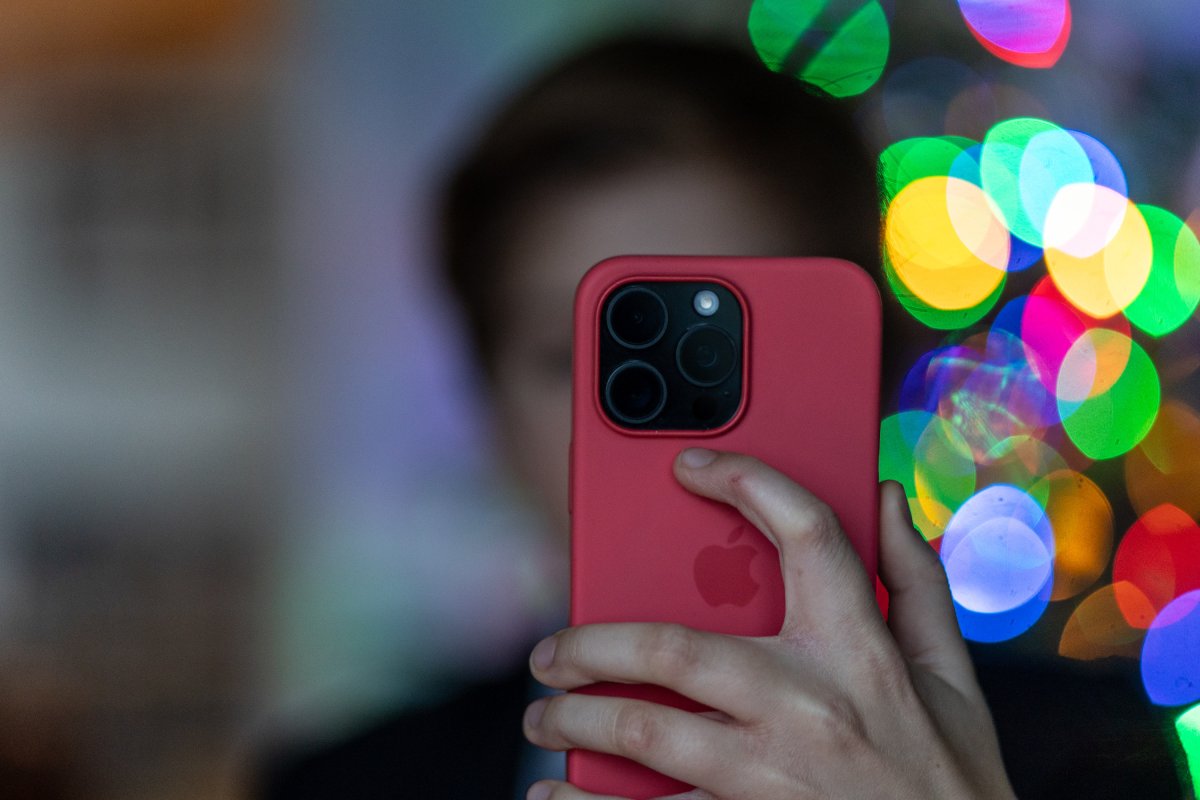What is the appropriate age to give my kid a smartphone and access to social media? Once I let the genie out of the bottle, as my teenagers turn into screenagers, how do I protect them from online harms? These are questions that vex every parent in America.
America's 15-year experiment with social media and smartphones has been, on balance, a catastrophe for our kids. The scientific evidence is so overwhelming that U.S. Surgeon General Vivek Murthy has issued a formal warning, saying we "must urgently address" the youth mental health crisis brought on by social media. Every parent, every teacher, every teenager knows it. Everyone knows, except—apparently—the CEOs of the tech corporations making billions by hooking America's children on their toxic, addictive apps.
At a recent Senate Judiciary Committee hearing, the CEOs of Meta, SnapChat, X, TikTok, and Discord lined up side by side, raised their right hands, and swore that they were working to make their products safe for kids—just like Big Tobacco executives did a generation ago.
Behind them, hundreds of mothers and fathers held up pictures of their children, all victims of fentanyl-laced pills, cyberbullicide (suicide brought on by cyber-bullying), social media-fueled eating disorders, or online sextortion (being tricked into sending compromising photos of themselves to predators).
Meta CEO Mark Zuckerberg assured the senators social media was not harmful to teenagers' mental health, defying not only a mountain of scientific studies, but Instagram's own internal analysis.
"We don't allow sexually explicit content on the service for people of any age," Zuckerberg told the incredulous committee. Senator Mike Lee (R-Utah) spoke for all parents, asking, "How is that going?" Not even Zuckerberg could restrain himself, allowing a knowing smirk.
The hearing clarified—for lawmakers and the American people alike—a chilling fact: Big Tech CEOs know social media is poisoning our kids, and they don't care.
Parents cannot count on politicians to solve the problem either. Legal technicalities—and billions in Big Tech lobbying—make any legislative solution unrealistic.
So what's a parent to do?
Take the advice of another parent—Surgeon General Murthy—and start early.
When your kids are young, collaborate with other parents in your child's friend group. Collectively opt out of smartphones and social media. Organize a parental "conspiracy for the good," so your child is not "the only one." Keep your adolescents off social media altogether, at least during the key years of psychological, social, and brain development. "Colluding" parents might give younger teens alternate "dumb" phones instead, like the Pinwheel, Gabb Wireless, or LightPhone so they can text and call, but not scroll the internet.
That advice has certainly worked for me as I've been raising my teenagers.

The key is helping kids form real—not virtual—social lives. Invest in a ping-pong table or backyard fire pit. Make your house the party house. Explore hiking trails where your kids and their friends can foster a love of nature. Or maybe a nearby park with a volleyball court. Shoot straight with your kids about how Silicon Valley algorithms manipulate users and gnaw at their mental health. Watch documentaries on the subject with them (such as The Social Dilemma on Netflix). Help them understand the business model of these apps is to hook them, steal their time and take them away from in-person interaction with real friends. Give your kid the confidence to be cooler than their screen-dependent peers.
Of course, eventually older teens need to learn how to use a smartphone, with proper guardrails. Some experts recommend waiting until age 16 or even older. When you discern your child has the self-mastery to handle a pocket-sized supercomputer, pre-empt the entitled assumption that the phone is their "personal device." Rather, make it a "family phone" you allow them to use. To support this policy, set the same family password on all devices. This approach greatly reduces the temptation to explore dangerous internet rabbit holes.
At our house, we keep a "freedom basket" in the kitchen where we leave our phones when we enter the house and where they stay anchored overnight to charge. We tease the kids that they are not cyborgs and need not be attached to a computer at all times. (The hardest part? It requires parents to model this behavior with our own smartphones. Ouch.)
Guardrails remain important even for older teens. Ubiquitous and crude sexual content takes romance and beauty out of the equation. It warps young people's perception of sex and compromises their ability to form healthy relationships—or even to date at all, according to recent data.
Remember, social media's dark side is wide-ranging. Do teenage girls benefit from apps with face filters designed to mimic plastic surgery? Or the endless stream of TikTok influencers glamorizing eating disorders, self-harm, and even drunk driving? Consider the short-circuiting of attention spans, and the mind control that pushes young users to the political fringes when social media becomes their primary news source.
Harvard professor Dr. Arthur Brooks, who studies human happiness, has sage advice for teens seeking to avoid social media pitfalls. He suggests logging on for no more than 30 minutes a day across all platforms, at only one time during the day, and on a family computer. He suggests deleting social media apps from your smartphone to obviate the constant temptation to pick up and scroll.
At the hearing, Senator Amy Klobuchar (D-Minn.) compared a mom's effort to manage her kids' screen use to an overflowing kitchen sink. The faucet keeps running, the sink keeps flooding, and mom has to keep mopping up.
The surgeon general is saying the mop won't work. The faucet has to be turned off. And only parents have the power to do it.
Your kids might resist for a while. But they will thank you later for protecting them from drowning online.
Maureen Ferguson is a Senior Fellow for The Catholic Association and co-host of the nationally syndicated radio show Conversations with Consequences.
The views expressed in this article are the writer's own.
Uncommon Knowledge
Newsweek is committed to challenging conventional wisdom and finding connections in the search for common ground.
Newsweek is committed to challenging conventional wisdom and finding connections in the search for common ground.
About the writer
To read how Newsweek uses AI as a newsroom tool, Click here.








